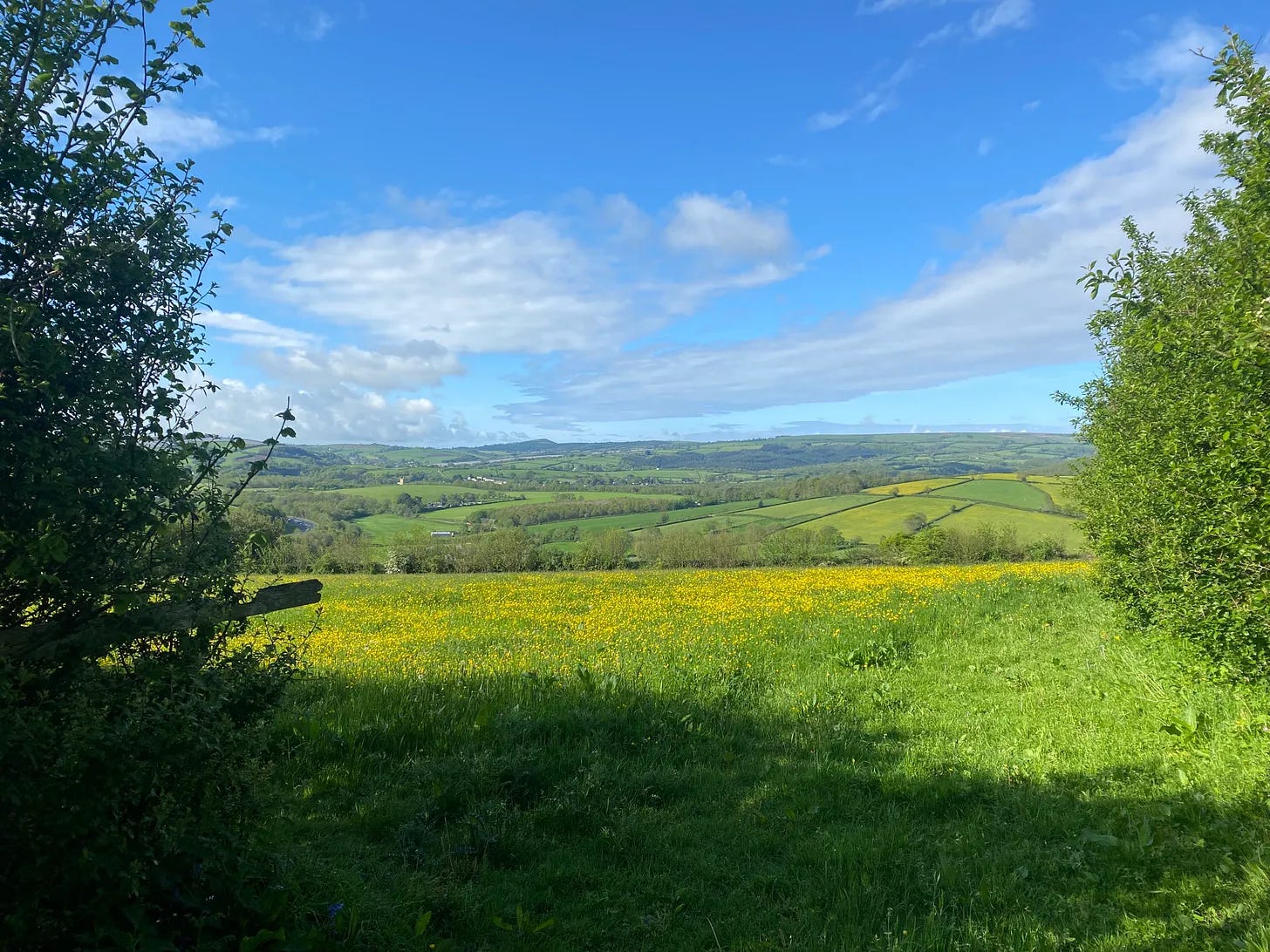Hi,
Just before I left Los Angeles in August 2021, I gathered some friends to mark crossing a threshold. We were all feeling some slow emergence from the worst of the pandemic and the seismic changes it had brought for us—bereavements, divorces, moves across the country or the world. We were all in some tentative stage of becoming.
We sat in my friend Aditi’s beautiful garden in Los Feliz, and I told the story of Manawydan fab Llŷr, from the Mabinogion. This tale from the Welsh myth cycle tells of four friends who get swept into the otherworld. One moment, they’re swanning about, hunting and feasting, and the next, there’s a clap of thunder and a mist descends. When the mist clears, the world before them is cast in bright light—and they see that of a sudden, there’s not another living soul in the world.
It’s a great story, worth reading in full. You can do that here, if you like.
It’s funny, the way stories work. Strange bits sometimes stick with you—often not the central point at all. When that happens, you know it’s the story really speaking to you.
With this story, the part that has always stuck with me is that clap of thunder and the enveloping mist. It’s just a detail at the start of the story, really, but I’m forever stuck on how sudden it is, and how apparently unbidden. I’ve felt that so many times: that from one moment to the next, everything can change, and you can find yourself standing in a new world. It’s a terrifying but also a beautiful thing. Maybe truly beautiful things are always a little bit terrifying.
But it’s not just the mist—it’s the hill, too. It’s the fact that the land is laid out before them when the mist rolls on in. They think they can see what’s coming. They think they can read the land and, with it, the future.
This past week, I realized that I have a persistent and pervasive sense, these days, of standing on a hilltop, looking out. Maybe it’s partly the place I’ve moved to—the fact that I do most of my thinking these days from a gentle slope, looking out over hills currently blooming bright springtime green.
But if it’s partly geographical, it’s also partly energetic. It’s a sense of having climbed something—I still can’t really articulate what—and found myself somewhere new, looking out over a land I don’t know.
It’s another threshold moment—and it feels a little like the last one in reverse. Instead of a thunderclap, a mist, and then a bright light that shows only death-in-life, I’m standing in a gentle mist, waiting for it to clear. Maybe it never will. I can see the springtime green in the valley, but not who lives down there, or what they’re doing. The best part is, I don’t really feel that I need to know.
I guess all of this is a longwinded way of saying that this week, I tried to sit down and write a publishing schedule for these Substacks. That’s what grown-up writers do, right? Put a plan in place, so they can take their readers on a journey; so there’s an arc to that journey.
But though I know I’m standing on a hill, looking out, I can’t see what’s out there. I don’t know what I’ll want to talk about or write about, or what I’ll be experiencing, in the weeks and months to come. It feels, more than anything, as though two years after I sat in Aditi’s garden and told the third branch of the Mabinogion, the mist is slowly lifting—and yet I’ve learned that, mist or no mist, you can never really see what’s out there; you can never really read the land or the future.
It’s good to be here, at the top of this hill. I know some of you are here with me. And I know how hard the climb was. And if you, like me, can’t quite see what’s out there in the valley just yet—maybe that’s exactly how it’s supposed to be.
Love,
x Ellie



